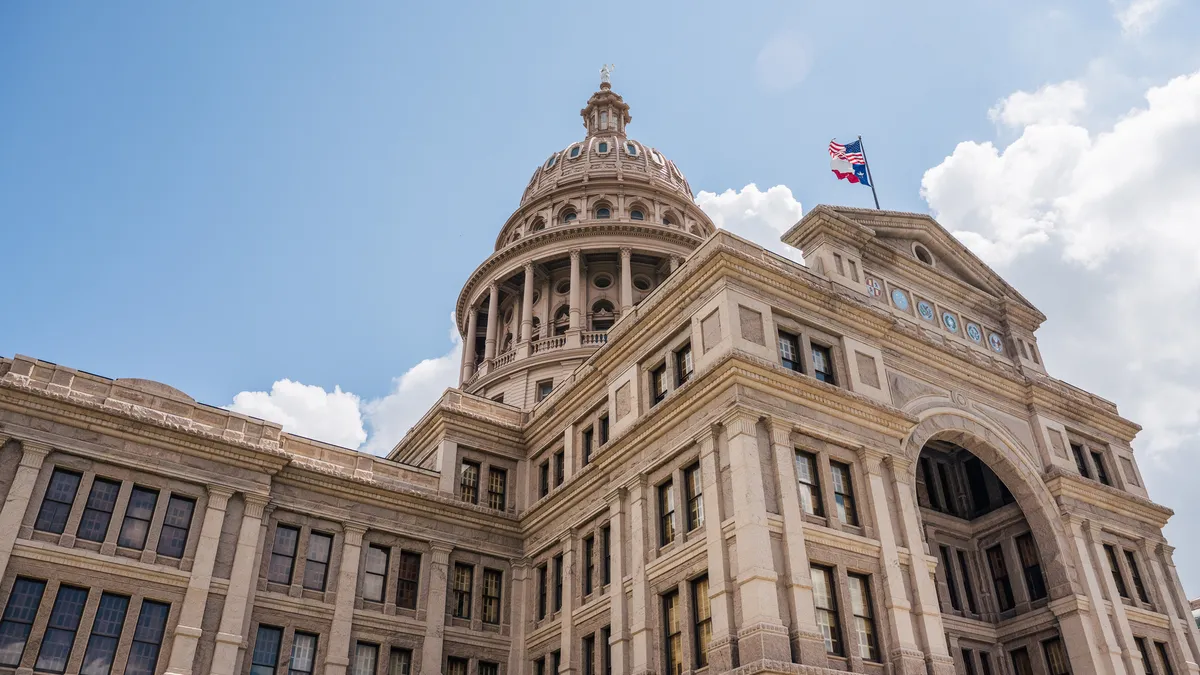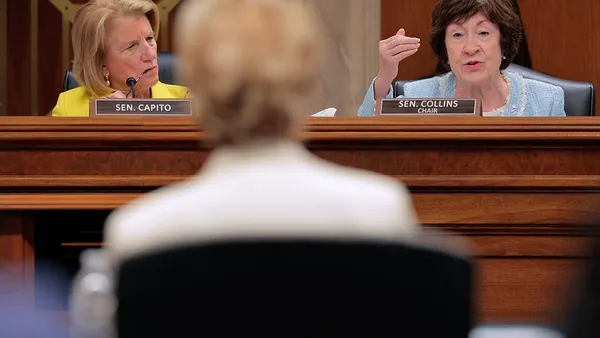Dive Brief:
-
Civil rights organizations including the American Civil Liberties Union filed complaints last week against two north Texas school districts over recently adopted anti-LGBTQ policies that the organizations allege violate Title IX.
-
The advocacy groups allege Frisco Independent School District discriminated against transgender, nonbinary, gender diverse and intersex students when its school board voted to restrict access to bathrooms, locker rooms and shower rooms that align with a student's biological sex.
-
The same groups also filed a complaint against Keller Independent School District, which they said violated civil rights protections against sex discrimination when its board voted to ban library materials that discuss or depict "gender fluidity" for all students.
Dive Insight:
The districts' decisions, made in November, come as part of a greater push in red states to enact policies regulating LGBTQ students' access to facilities and on culturally reflective curriculum.
Local and state laws are increasingly limiting books and discussions on topics related to LGBTQ identities, with 23 states introducing anti-LGBTQ bills in 2022 alone, according to the Human Rights Campaign.
When Florida's Parental Rights in Education Act, referred to by opponents as the “Don’t Say Gay” bill, was signed into law, U.S. Secretary of Education Miguel Cardona said in a statement the legislation was part of "a disturbing and dangerous trend across the country of legislation targeting LGBTQI+ students, educators, and individuals." At the time, Cardona reminded Florida students to file complaints with the agency’s Office for Civil RIghts if they experience discrimination and said the department "will be monitoring" Florida's law.
The U.S. Department of Education under the Biden administration has been steadily in favor of LGBTQ rights — including explicitly incorporating LGBTQ rights in proposed Title IX protections for the first time. Nonetheless, advocates have been skeptical of whether the department is doing enough to implement Title IX in favor of LGBTQ students.
In the meantime, multiple lawsuits and OCR complaints have been filed challenging local and state policies restricting curriculum, instruction and facilities access, such as in Florida and Tennessee. Legal experts have said while successfully challenging anti-LGBTQ policies on a local level will send a message to states and localities passing similar restrictions, one or multiple Title IX cases may have to work their way up to the U.S. Supreme Court to detangle the web of laws nationwide.
In 2021, however, the Supreme Court declined to hear a high-profile Title IX case, brought by a former Virginia high school student, that had the potential to settle the debate spanning multiple presidential administrations over whether Title IX covers protections for LGBTQ students against sex discrimination.
In that case, Grimm v. Gloucester County School Board, transgender student Gavin Grimm sued over a policy that prohibited him from using bathrooms aligning with his gender identity.
While the Supreme Court's refusal to take the case meant the lower court's decision in favor of Grimm stood, it left open whether Title IX includes LGBTQ protections for lower courts and local policies to determine in line with federal guidance and interpretations.













